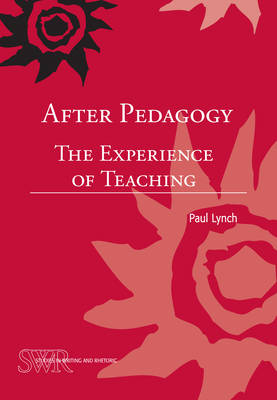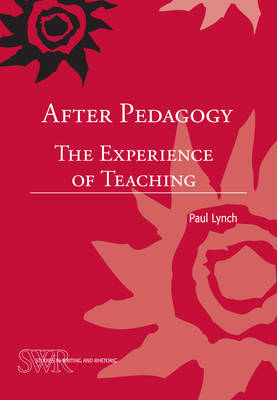
- Afhalen na 1 uur in een winkel met voorraad
- Gratis thuislevering in België vanaf € 30
- Ruim aanbod met 7 miljoen producten
- Afhalen na 1 uur in een winkel met voorraad
- Gratis thuislevering in België vanaf € 30
- Ruim aanbod met 7 miljoen producten
Omschrijving
What does it mean to teach after pedagogy? For a long time, composition's pedagogical conversation has been defined by its theoretical disagreements.
Is learning a cognitive process or a social one? Is the self expressed or distributed? Can writing be understood as a process, or is any process too messy to be understood? These debates have finally run out of steam, argues Paul Lynch, leaving composition in a "postpedagogical" moment, a moment when the field no longer believes that pedagogical theories can account for the complexities of teaching. After Pedagogy extends the postpedagogical conversation by turning to the experience of teaching itself.
Though the work of John Dewey, After Pedagogy argues that experience offers an arena in which theory and practice can coexist. Most important, experience can fashion the teachable moments of postpedagogical practice into resources for further growth. "We cannot know what precisely the student will do with what we have offered, but we can think with the student about the experience of the offer itself." By turning what students and teachers know about writing into an area of intellectual inquiry, a philosophy of experience can make teaching sustainable after pedagogy.
Specificaties
Betrokkenen
- Auteur(s):
- Uitgeverij:
Inhoud
- Aantal bladzijden:
- 171
- Taal:
- Engels
- Reeks:
Eigenschappen
- Productcode (EAN):
- 9780814100875
- Verschijningsdatum:
- 20/12/2013
- Uitvoering:
- Paperback
- Formaat:
- Trade paperback (VS)
- Afmetingen:
- 211 mm x 140 mm
- Gewicht:
- 258 g

Alleen bij Standaard Boekhandel
Beoordelingen
We publiceren alleen reviews die voldoen aan de voorwaarden voor reviews. Bekijk onze voorwaarden voor reviews.











